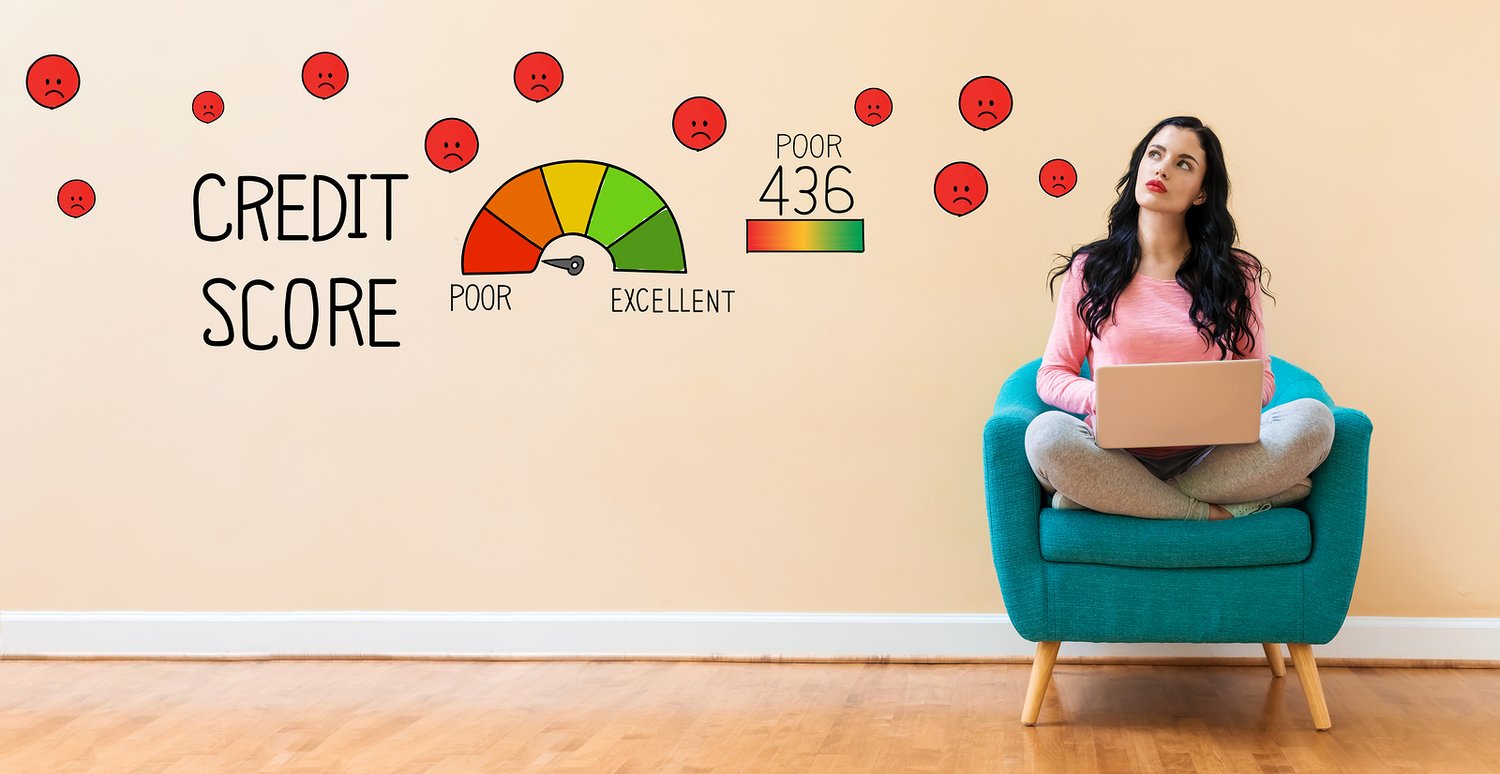
Having a low credit score can impact your life in many different ways. Your creditworthiness, or lack thereof, can prevent you from owning your own home, buying a new car, having access to credit, and can even jeopardize your career opportunities. Thankfully, there are several ways to raise a credit score. Even scores below 500 can be salvaged, so if you aren’t credit worthy at the moment, don’t fret, there are ways to improve your creditworthiness and get you back in the good graces of lenders.
Start rebuilding your credit by getting a secured credit card
You might be thinking that opening a credit card account with a poor credit score is impossible, but some banks specialize in dealing with individuals trying to rebuild their credit. A secured credit card through your bank or a major top-tier lender is a good place to start. With a secured card, you’ll be asked to put down a deposit on the card. Your credit limit will be based on the deposit you’ve submitted. So, if you’ve put down a deposit of $300, the limit on the card will be $300. Some cards will offer a program to switch you over to a traditional credit account after a series of on-time payments, and your deposit will be used towards your balance. But remember to carefully read the terms of any card you’re considering, secured or not, before you commit to anything.
Deal with any negative items on your credit file
While there are a variety of reasons for a low credit score, one of the most common issues that people face is negative marks on their credit report. If you have loans in default you might want to consider contacting the credit issuer, or the company who currently owns the account, and then discuss your options. Bringing your payments and accounts back to current can help raise your score, or prevent it from sinking any lower. So if you can, get current and stay current on your accounts. Dealing with these issues first can help any positive changes you make to have a larger impact on your overall score.
Pay down your debt to build up your credit score
High credit utilization can sink your score quickly. Financial experts suggest paying down your existing debt, and paying off credit cards in full each month, if possible. By paying down existing debt on loans, and paying off revolving credit each month, you’ll keep your credit utilization low, thus raising your score. Some experts suggest aiming for a credit utilization of below 30%. If for example, you have $10,000 in credit available, you should be utilizing no more than $3,000 of it.
Don’t close credit card accounts hoping it will increase your credit score
If you have credit cards you no longer use, some financial experts might not advise you to close the accounts because your credit history plays a role in determining your credit score. Your credit history depends on the length of your oldest account. If you have credit cards that are in good standing, but you are not actively using them, it might be worth keeping them open and somewhat active. This can also help your credit utilization, adding to your overall available credit. But just be aware that this is a short-term strategy that might help improve your score. As your credit score increases, you can slowly start closing accounts you are no longer using.
Pro tip: According to some insider experts, always keep the oldest account active.
Don’t apply for too many new credit products in a short amount of time
While you might need to increase your available credit to improve your credit score, it’s best to avoid applying for a ton of new credit cards or loans. Every time you apply for new credit, whether it was offered to you at a store or you went looking for a new credit card on your own, your credit file will need to be accessed by the lender, which counts as a “hard” inquiry. Hard inquiries will cause your credit score to dip. Many hard inquiries at once can have a negative impact on your credit score and be counterproductive to your goal of improving your credit score. Experts suggest that you deal with your current accounts instead, rather than try to increase your available credit by opening new accounts. Even after your credit score starts to rise, you should avoid filling out new credit card applications. Creditors will see the number of inquiries you’ve submitted, and it can count against you when applying for larger purchases, like a car loan or mortgage.
Keep an eye on your credit report for incorrect information
Credit reporting agencies are not infallible. You should monitor your credit file and credit history regularly to make sure you are not being penalized for accounts that don’t belong to you. You are entitled to one free credit report once a year. If you see any accounts or information that is not correct, contact the credit reporting agency and work to have it removed. In some cases, this may involve reaching out to the creditor that reported the incorrect information. The process can be time-consuming, but it’s a fairly straightforward fix that can revive a flailing credit score.
Contact Credit Canada for tips on how to rebuild your credit
A low credit score can be stressful, and it can negatively impact your life and future opportunities. But that doesn't mean you're destined for a life of less-than-stellar credit. There are several ways to improve your credit score, and you can start today. Book a free Credit Building counselling session with Credit Canada by calling 1 (800) 267-2272 and explore your credit building options with a credit expert, for free.

Frequently Asked Questions
Have a question? We are here to help.
What is a Debt Consolidation Program?
A Debt Consolidation Program (DCP) is an arrangement made between your creditors and a non-profit credit counselling agency. Working with a reputable, non-profit credit counselling agency means a certified Credit Counsellor will negotiate with your creditors on your behalf to drop the interest on your unsecured debts, while also rounding up all your unsecured debts into a single, lower monthly payment. In Canada’s provinces, such as Ontario, these debt payment programs lead to faster debt relief!
Can I enter a Debt Consolidation Program with bad credit?
Yes, you can sign up for a DCP even if you have bad credit. Your credit score will not impact your ability to get debt help through a DCP. Bad credit can, however, impact your ability to get a debt consolidation loan.
Do I have to give up my credit cards in a Debt Consolidation Program?
Will Debt Consolidation hurt my credit score?
Most people entering a DCP already have a low credit score. While a DCP could lower your credit score at first, in the long run, if you keep up with the program and make your monthly payments on time as agreed, your credit score will eventually improve.
Can you get out of a Debt Consolidation Program?
Anyone who signs up for a DCP must sign an agreement; however, it's completely voluntary and any time a client wants to leave the Program they can. Once a client has left the Program, they will have to deal with their creditors and collectors directly, and if their Counsellor negotiated interest relief and lower monthly payments, in most cases, these would no longer be an option for the client.
How to Regain Good Credit and Good Financial Health
Watch our free on-demand webinar on How to Regain Good Credit and Good Financial Health.







